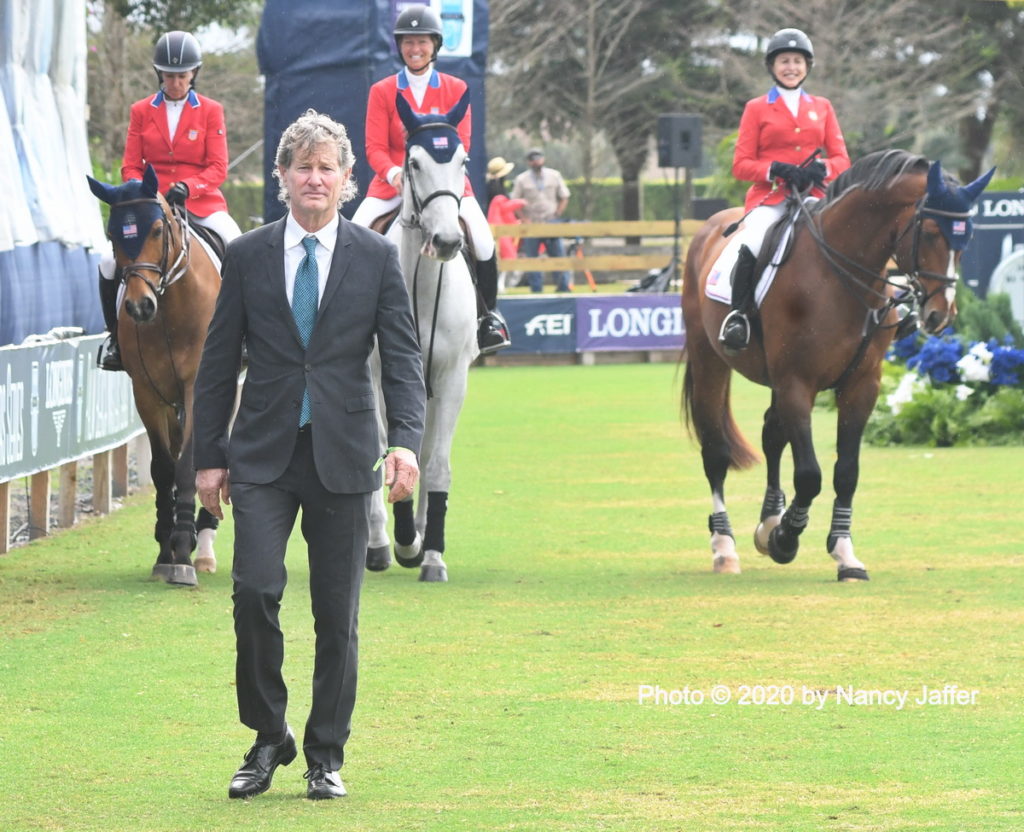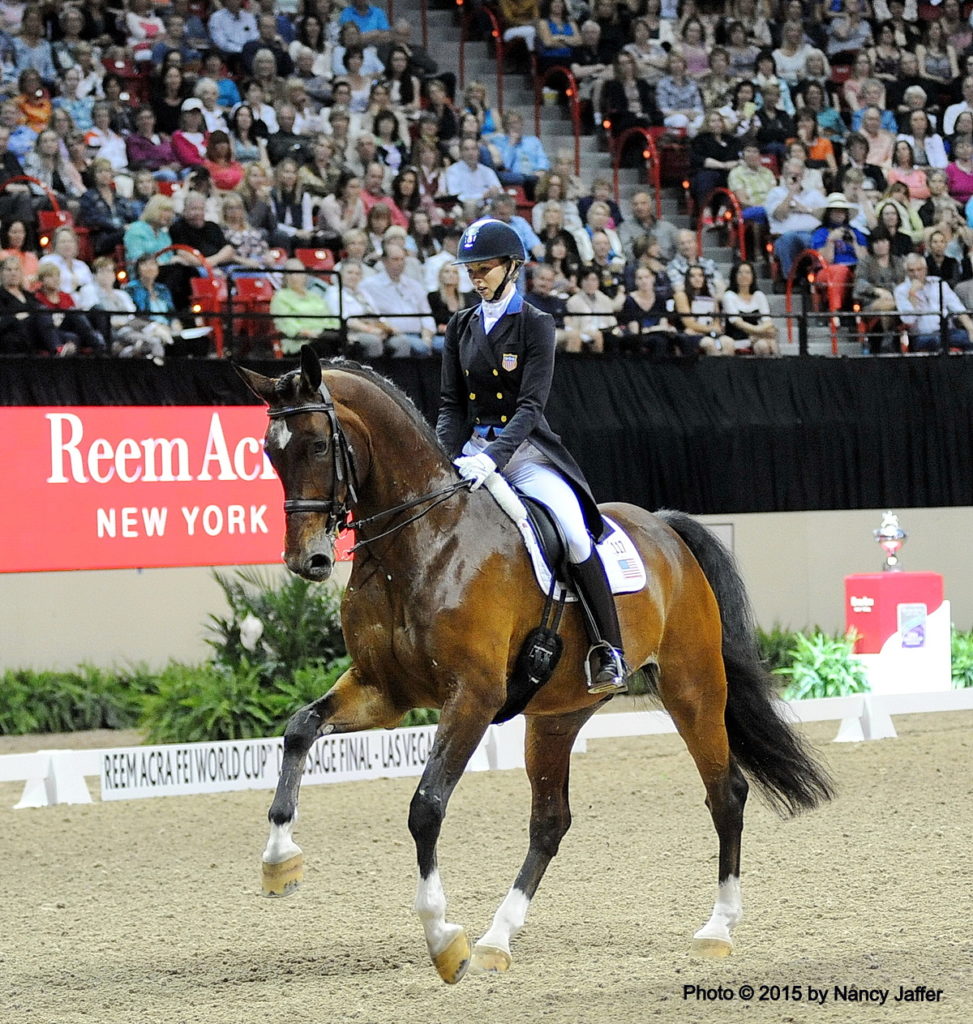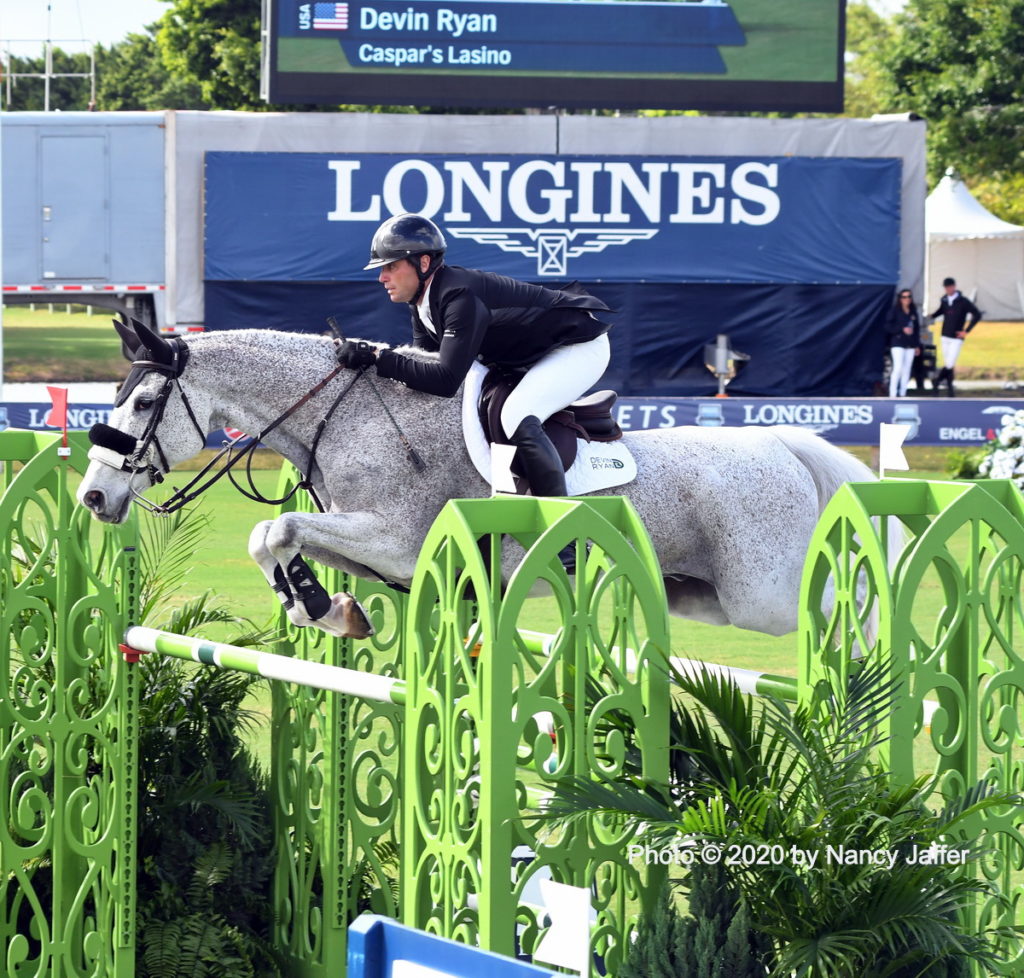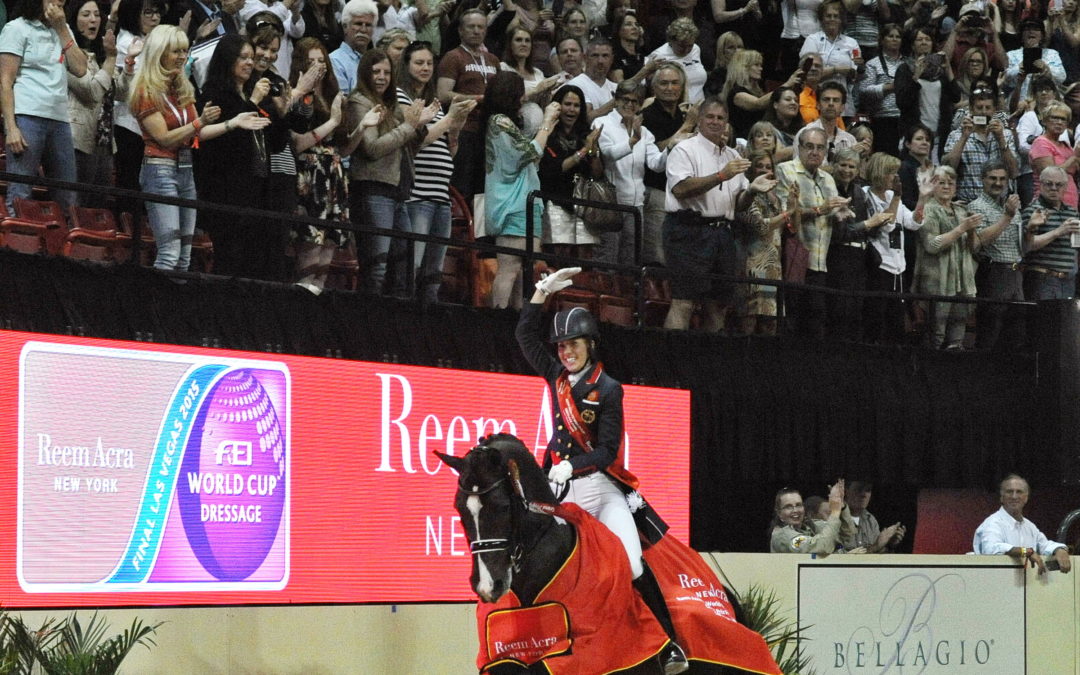The tsunami of pandemic-sparked cancellations involving equestrian competitions large and small will be felt by a diverse group that runs from top athletes looking toward the Olympics down to kids hoping to qualify for their championships; officials, those who manage the shows, horse transporters, jump crew, show secretaries and catering staff, among many others involved with horse sport.
“It’s staggering what the ripple effect is going to be,” said U.S. show jumping coach Robert Ridland after it was announced that the FEI World Cup Finals in dressage and jumping April 15-19 were called off. The Las Vegas competition joined a sad list that includes March Madness and a host of other athletic events, as well as the closing of Disneyland, Broadway shows and the Metropolitan Opera. The London Marathon has been postponed to October from April 26, but the Grand National steeplechase in England set for April 4 was cancelled..
The void left by the eagerly anticipated World Cup Finals is “extremely disappointing, no question,” said Robert, who was manager of the Cup when it made its first Vegas appearance in 2000 and for four editions after that until he became coach.

U.S. Coach Robert Ridland walking with his team before the Longines FEI Nations Cup at the Palm Beach Masters. (Photo © 2020 by Nancy Jaffer)
Twenty years ago, “it was the turning point of how the sport in many ways was presented,” giving a boost to “shows around the world that needed a kickstart.
“It was presented the way real sports are meant to be presented, fueled by tickets and fans,” he said.
The last time it was held in Vegas, in 2015, Steve Guerdat of Switzerland started a winning streak on the show jumping side (he was supposed to come back for a shot at a record fourth victory), while the fabulous Valegro won the dressage honors. (That’s the feature photo above.) Valegro’s rider, Charlotte Dujardin, was scheduled to compete on her current ride, Mount St. John Freestyle, in a battle with world number one Isabell Werth on Weiheigold, also going for an unprecedented fourth Cup win. Another loss is not being able to see the USA’s beloved dressage star Verdades enjoy a formal retirement in front of his fans.

Laura Graves and Verdades in Vegas at the 2015 FEI Dressage World Cup Final. (Photo © 2015 by Nancy Jaffer)
Cup organizers decided to cancel after the travel ban was announced on Wednesday, which would have made it impossible for European riders to get to Vegas.
“You can’t have the sport if you can’t have the competitors there,” said Devin Ryan of Long Valley, who qualified for the show jumping final on Caspar’s Lasino. After months of planning, the situation is discouraging.

Devin Ryan and Caspar’s Lasino. (Photo © 2020 by Nancy Jaffer)
“You develop a whole season, you pick certain shows, you try to get certain points and qualify, and when your stars all line up, something like this happens,” he said.
“To take a shot at doing the World Cup Final again for the third time in a row, I was psyched.”
He also observed, however, “There are people out there who have it way worse than we do. We’re very fortunate that we get to ride these horses and do what we do for a living. There will be other shows.”
But wave after wave of bad news connected to the virus outbreak rolled in on Friday the 13th (which lived up to its evil reputation) and continued into the weekend and this week. In the wake of the U.S. Equestrian Federation calling for all its shows to suspend for a month (they can go on, but competitors will not receive points or qualifications) and the FEI (international equestrian federation) also was requesting a 30-day halt in the action, the U.S. Eventing Association voted to curtail recognition of any competitions under its direct jurisdiction for “at least” two weeks.
The National Basketball Association, along with major league baseball and hockey, has called a halt to games. There are those, however, who feel that equestrian’s regulatory bodies, in their concern about safety, may have overstepped their bounds, in effect forcing shows to cancel because running fixtures where participants can’t earn points doesn’t work in most cases.
The loss of the World Cup and so many other top competitions is regrettable, but they are far from the only casualties of the challenging situation, which reaches down to the state and local levels.
Mason Garrity has worked hard to rejuvenate the 47-year-old Four Seasons show, an April A-rated fixture he manages at the Horse Park of New Jersey. It falls within the 30-day window, and running it as an unrecognized show is not an option.
“It’s disheartening,” said Mason, who is supporting a young family.
“The amount of expense we put into the horse show, we can’t risk that to run unrated, hoping people show up. I want our exhibitors to be safe, so it doesn’t seem like a good plan to go against it and run. We ran unrated winter shows this year and ended up losing money. I just bought out Paul Jewell’s jump company,” said Mason, who was hoping to rent jumps to other shows, which now won’t be held. It’s a difficult situation all the way around.
“I don’t know what the answer is. It’s a shocker,” observed Mason, who is canceling his show and has emailed USEF to ask if the fees paid for this year can be rolled over to 2021.
The officials hired for the show that isn’t happening aren’t going to be getting their paychecks, ditto jump crew, ingate folks and show secretaries, along with others who are vital to putting on such a competition.
One of the judges who won’t be officiating at Four Seasons is Tucker Ericson.
“It’s times like these where I thank my parents for giving me the strength to stick with corporate America and do horses as a second career,” said Tucker, who runs the Monmouth at the Team show but works full-time in the insurance field.
“You feel bad for so many trainers who are (living) hand to mouth…and everyone who works a horse show. They probably will survive a week or two, but when you go much longer than that and they’re not getting their income, it’s tough.”
He noted everyone in the industry generally will agree to forego a paycheck if management has to cut out a ring or a day to make ends meet. In this instance though, “it’s a little bit concerning that this is just thrown upon them and there’s very little they can do to make up the difference.” There are many, he pointed out, who “don’t have a month of reserves.”
But maybe, “in a state like New Jersey that has so many lower-level schooling shows,” trainers will use this as an opportunity to take some of their lower-level riders to those unrecognized competitions. Perhaps they can make up the difference by focusing on that part of their business, he commented.
With the winter circuits winding down, perhaps “having a month as a good transitional time” will work, “as long as the 30 days doesn’t get extended further.”
He suggested that people, “think about those in the industry who are less fortunate than you and what you can do to help them get through this period. If each person just does something small for someone they know must be in a little bit of need, that’s awesome.”

Tucker Ericson
Tucker mentioned that trainers who have extra projects on their farms could hire jump crew members or others they met at shows who are out of work to handle their projects.
Mason Garrity’s difficult situation is mirrored around the country, but everyone is handling the current state of affairs differently.
Nona Garson and George D’Ambrosio are continuing their Turf Tour show jumping series in Wellington, Florida, even though the Adequan Global Dressge Festival and the Winter Equestrian Festival called a halt two weeks early. The early end to the WEF scuttled Devin’s plans to show his number one horse, Eddie Blue, at the final WEF competition and perhaps get noticed as an Olympic contender with a good performance there.
Bob Bell of the Gulfport, Miss.,Gulf Coast Winter Classics show circuit said on Facebook, “USEF may have ended our circuit by two weeks (early) but with so many unable to ship home we are having an unrated show next week with a $25,000 Grand Prix.”
However, after talking with USEF CEO Bill Moroney, he said he realized even a little show like the one he envisioned could jeopardize people’s health and called it off. Meanwhile, rides home were offered to horses stranded in Mississippi, so it all worked out.
Meanwhile, those involved with the USA’s Olympic effort are going to be meeting for discussions of how to handle necessary changes in training and selection looking toward the Olympics–and hoping they won’t be cancelled. There is not yet a clear path forward, and much is uncertain.
As U.S. dressage technical advisor Debbie McDonald put it, “We’re kind of in limbo.”




